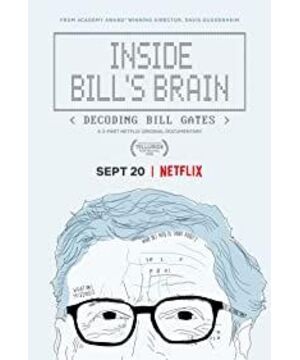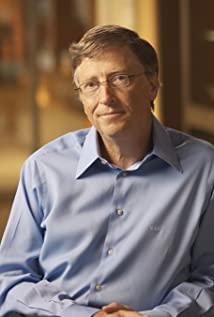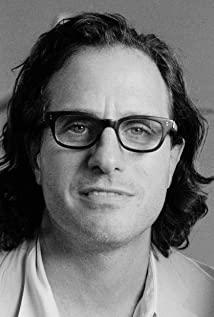Stumbled upon Bill Gates' TED talk in 2015. In his speech, he used Ebola as an example, assumed a terrible infectious disease, and called for the construction of public health.
In addition to the fear that this Covid-19 outbreak has brought, it has also left me feeling incompetent. There is no way to make a meaningful contribution, and there is no unique vision to see the environment in which you live. All perceptions are nothing but media and parody. Bill Gates has always been just a successful businessman in my memory, and the field of public health and businessman don't sound necessarily connected. So curious how he made this appeal.
While searching for his info, I came across this documentary.
01
In the documentary, he has long devoted himself to many public spheres to solve urgent and difficult problems, some of which have been neglected. Promote the toilet revolution, promote the implementation of the polio vaccine, and improve the use of nuclear energy. It is not surprising that such a person realizes that the epidemic prevention system is not perfect.
And Mount Everest was not formed in a day. Much of what he is known for today was slowly established in his early years.
Many people know that Bill Gates is a Harvard dropout. This incident is always regarded as a story of brave pursuit of dreams. Sometimes people will make fun of "what if there is no xxxxx, isn't Bill Gates also a Harvard dropout?". People who know a little more can start to argue: Although he dropped out of Harvard, in fact, if he fails to start a business, he can return to Harvard to continue his studies.
There is a scene in the documentary that touched me very much: when Bill Gates was in middle school, he and his peers received an invitation from a company, hoping they could help with a task. So, they immediately took a semester off and went to that city to complete that mission.
If it is said that if you drop out of school, you can go back to study again, in a sense, is it equivalent to a long-term leave? Everyone only pays attention to things that sound cool, but when you look at his growth, you will find that these things are not achieved overnight. There has long been an implicit link between Harvard dropouts and high school leave.
After so many years of living by the rules, I don't think it's wrong to follow the rules. I just sometimes wonder if following the rules allows us to avoid a lot of risks, and whether it also blocks a lot of our creativity. Always give up a lot of attempts because "this is not good". If I wanted to do something in middle school, I had to take a semester off, whether it made sense or not, I would have broken my leg.
But will the impact of taking a semester off will really be so great that the future coursework will not be able to make up for it? It seems to be limited by other rules and regulations.
In addition to the general study life, Bill Gates and his partners also set their sights on the wider world early on.
Of course not every reader can get his wish, but before going to a place, you have to think about it first.
He also has an excellent mother. His mother has been guiding him on what to do. Although they also had their domineering times, many of their mother's guidance proved to be extremely important later on. Whether it is the development of the career, or the perfection of the personality.
Bill Gates said he was a lucky man. indeed so. He has a good growth environment, with someone to guide and accompany him. It's not just living by the rules, and learning to have a free eye early on.
02
In many topics on the Internet, many people hope that their wish to get rich overnight can be realized immediately rather than getting rid of the single as soon as possible. What will life be like when you have money? It may be that you can buy clothes casually, go out and walk around, and contract fish ponds. Many troubles can be solved easily. What's the matter, just throw money at it.
Bill Gates can really solve a lot of problems with money. When he found that many children in poor countries died of dysentery every year, but the methods of water treatment in developed countries could not be directly applied to poor countries, he needed to redesign toilets and sewage treatment systems. So the Bill & Melinda Gates Foundation (named after Bill Gates and his wife) put forward a competition to collect nearly $7 million worldwide for new toilet inventions. Soon, they had a satisfactory design.
But money is not something you can just throw away. He is not rich and can easily solve many problems.
The Omni processor he led a team designed can already clean up one-third of the city's fecal sewage in Dakar. However, the exorbitant construction costs have prevented the widespread implementation of new toilets and sewage treatment systems.
There will also be times when he has insufficient funds and needs to find friends for help. When conducting a charitable cause, in addition to planning how to do it, it is also necessary to think about how much impact the project will have on the foundation if it fails.
This talented and persistent man is still moving forward. You don't know whether it's because you don't have such an independent and profound vision, so you can't reach such a height. Or because there is no such height, so there is no such vision. Or maybe it all points to the same problem in the end.
Every shot of the director must be conveying some message he wants to convey. Documentaries only convey a certain part of the truth, but there are a thousand Harry Potters in a thousand readers, so people can get a lot of different inspirations. Mr. Liang Shuming has a book called "Will This World Be Better?" ". This documentary is like providing an answer to another question, money, and then what? In an era where money, entertainment and success are constantly being exaggerated and imagined, this documentary makes people rethink these issues, no longer the thinking of "I contracted this pond for you".
If you like it, you can pay attention to the WeChat public account: the ghost above the pavilion
View more about Inside Bill's Brain: Decoding Bill Gates reviews









